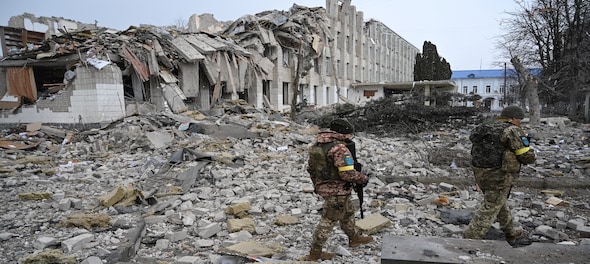
As Russia continues its war of aggression in Ukraine, several industries are now facing the prospects of supply chain issues and macroeconomic headwinds.
The two countries are some of the biggest exporters of raw materials in the world. But with the Russians indiscriminately attacking Ukrainian cities, the latter's ports are blocked and the former is facing severe global sanctions.
With many industries still on the road to recovery from the economic effects of the COVID-19 pandemic, these sectors will now have to navigate additional headwinds.
Automobile industry
The automobile industry has been struggling since the pandemic first started in 2020. With sales still below pre-pandemic levels in India, the automobile industry is going to face higher input costs for steel and fuel.
Increased fuel costs as crude closes into the $120 a barrel mark means that logistical costs are also going to see an increase. Prices of other base metals that are also used in the automobile industry, like aluminium and nickel, have also seen a marked increase.
Semiconductor industry
Russia is one of the world’s largest suppliers of rare metals that are used in the semiconductor manufacturing process while Ukraine is the world’s leading supplier of rare gases used in industrial lasers that are used to produce semiconductor chips.
With the flow of both materials halted to companies, the semiconductor industry is bracing for another supply-chain shock if the conflict continues for a prolonged period.
Agriculture sector
Russia and Ukraine together make up around 30 percent of global trade in wheat, 32 percent in barley, and 17 percent for corn. As supplies from the two countries have stopped, the prices have risen up sharply, further driving up prices of pantry essentials like bread, pasta, and other FMCG goods.
Even the countries which are reliant on imports of food goods will see a pinch on their wallets as shorter supplies mean that prices will increase as demand remains inelastic.
Edible oils
Russia and Ukraine are also some of the leading exporters of edible oils, especially sunflower oil. India, in particular, imported a total of 18.93 lakh tonnes of sunflower oil, of which 13.97 lakh tonnes was sourced from Ukraine while an additional 2.22 lakh tonnes was sourced from Russia.
With the invasion now in full force, the supply of sunflower oil from the two countries is expected to sharply diminish and cause a huge increase in prices. This will also impact the FMCG industry that relies on food oils which have already been seeing an increase in prices.



